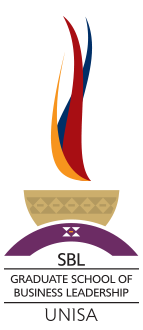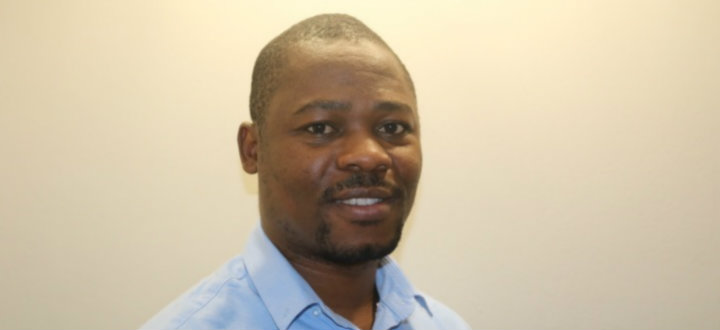

Dr Binganidzo Muchara
In his opening statements in Budget 2019 yesterday it was clear that Finance Minister Tito Mboweni had remained loyal to President Cyril Ramaphosa’s desire to commit to five key tasks that could change South Africa’s fortunes. In an economy stifled by corruption and burdened by stubborn levels of unemployment this was never going to be easy. Some of Mboweni’s intended solutions have potentially hit their mark; others remain more problematic.
It is important to keep the thread of what government is saying and what the numbers tell us, from the mid-term budget policy statement (MTBPS) that Mboweni gave us in October last year, to Ramaphosa’s State of the Nation (SONA) address earlier this month and now Budget 2019.
Budget 2019 gives depth to what can be practically achievable. However, looking at the numbers it is obvious that our state finances are critically unhealthy and that granting Ramaphosa’s five wishes will require momentous work. We are not in a good position. As Tito Mboweni said, we will need to tighten our belts, be resilient and practice more prudence.
In President Ramaphosa’s SONA he reflected largely where we will be going as a nation. He spoke of a path of renewal, with a focus on an acceleration of inclusive economic growth and job creation, an improvement of the education system and skills development, better living conditions for all South Africans, a strengthened capacity and capability of the state to address the needs of the people, and a fight to eradicate corruption and state capture.
Despite new spending pressures and reductions, the budget endeavours to be strongly redistributive. About 68 per cent of consolidated expenditure goes towards social commitments, including education, health, social grants and basic services.
The backdrop to this, however, is South Africa’s massive deficit, with spending overtaking revenue by R243 billion (revenue at R1.58 trillion; spending of R1.83 trillion). As Mboweni said, “We are borrowing about R1.2 billion a day, assuming that we don’t borrow money on the weekend. This coming year, interest expenditures will be R209.4 billion, which is R1 billion per day.)
Opportunities for inclusive growth and job creation
Government is putting concerted effort into the programmes and incentives that support job creation and which medium and small companies can take advantage of. The figures indicate success in a variety of instruments and additional funding and expansion of these programmes open up access for both job seekers and companies. These included
Employment Tax Incentive (ETI) scheme
Jobs Fund
Small Enterprise Development Agency
The small business incubation programme will receive an allocation of R481.6 million to expand this programme
Investments for emerging farmers
Small Business and Innovation Fund in 2019/20
Will more money improve the education system?
Getting education right is a long game that comes with no quick fixes. Yet it is one of the most critical areas in South Africa’s rehabilitation and goes to the roots of unemployment and the cycle of poverty.
In terms of basic education, Mboweni says that government will be prioritising reading comprehension through an early grade reading strategy and tackling infrastructure backlogs that negatively affect learning in basic education. In higher education and training, there will be a focus on expanding access to universities and technical and vocational colleges and improving student performance.
Budget priorities include improving school and student housing infrastructure and providing bursaries for tertiary students from poor and working-class families. Spending will grow from R354.8 billion to R442.6 billion over the medium term, at an average annual growth rate of 7.6 per cent.
The education infrastructure grant is allocated R34.3 billion over the three-year spending period to build new schools and maintain schooling infrastructure. A further R2.8 billion will go towards school infrastructure backlogs grant to replace pit latrines at over 2 400 schools. This grant will also replace 147 inappropriate and unsafe schools and provide water to 352 schools over the MTEF period.
An amount of R19 billion is provided for learner and teacher support material, and R3.9 billion is allocated to fund 38 000 Funza Lushaka bursaries for prospective teachers in priority subject areas such as mathematics, science and technology. About 9 million learners at over 20 000 schools will receive daily meals through the national school nutrition grant via an allocation of R23 billion over the MTEF period.
Has the budget gone far enough to ensuring that all South Africans have access to education? At the ceiling of allocation there is really little more funding that could be allocated here.
It now becomes crucial that these much-needed funds are not squandered through mismanagement. A solution-focused ethos is sorely needed to filter throughout South Africa’s education system, supported by adequate monitoring, evaluation and remediation.
The health of South Africans, not there yet
Besides the R1.2 trillion set aside for learning and culture, health services (including National Health Insurance) will receive R717 billion and nearly R900 billion for social development.
In the quest for effective interventions the budget has reprioritised R2.8 billion to a new human resource grant to enable more health practitioners from doctors to nurses and a further R1 billion for medical interns. Additionally, R1 billion has been added to raise the wages of community health care workers to R3500 per month. Finally, about R319 million is allocated to eliminate malaria in South Africa.
The national health insurance (NHI) and its implementation is a policy priority for government, yet I am sceptical of this undertaking. The state of public health in South Africa is dire; you need only ask the average South African who must visit a state hospital or outlying clinic.
As well as the shortage of human resource shortages, poor administrative processes and failing infrastructure, anecdotal evidence suggests poor ‘workplace health’ amongst healthcare workers who are over-worked, as well as many who appear to be inadequately trained.
Government is endeavouring to address staff shortages and other problems in public health facilities before the NHI can be fully rolled out.
Over the MTEF period, R2.8 billion is reprioritised from the NHI indirect grant (personal services component) to the new human resources capacitation grant to help provinces fill critical posts, including intern and community service posts. In addition, R1 billion is added to the provincial equitable share in 2021/22 to fund the permanent appointment of medical interns.
Government also acknowledges that failing to maintain an asset significantly reduces its useful life, bringing forward the rehabilitation of assets. The health facility revitalisation grant will receive a total of R19.2 billion over the 2019 MTEF period.
The national health insurance indirect grant includes funds to maintain healthcare facilities. This will receive R4.3 billion over the medium term. Cabinet has approved additional allocations to this component to fund the planning and construction of the planned new academic hospital in Polokwane, in response to the need to strengthen tertiary healthcare services in Limpopo and expand the platform for training new health professionals.
There are problems associated with this, however. Firstly, government says that provincial governments own and operate health facilities, therefore they are responsible for managing these assets. It is appropriate that provinces prioritise maintenance from their own revenues (including the provincial equitable share) and do not rely on transfers from national government to fund this function.
Secondly, a two-year planning process is also required for provinces to access this grant. The national Department of Health and the National Treasury assessed the provinces’ infrastructure plans, followed by a moderation process between the national departments, provincial treasuries and provincial departments of health to agree on the final scores. Provinces had to obtain a minimum score of 60 per cent to qualify for the incentive.
While correct in theory, both these issues smack of a ‘passing of the buck’ from national to provincial level. To successfully roll out a national health scheme is going to require intense, concerted effort and fully-aligned national and provincial departments. A failed national health system will be everyone’s problem.
Secondly, seeing the grants as an ‘incentive’ seems to reduce the basic right of a person’s access to healthcare. If the province and health facility does not qualify for a grant to improve its facilities, what of the people who have little choice but to use this as their primary point of healthcare?
Conclusion
There are many issues that face South Africa, not least of which is the energy sector (fuel & electricity) where Eskom remains the unsolvable issue and the single biggest risk to our economy. Government itself faces the looming general elections in May which has also somewhat tempered the tabling of Budget 2019.
However, the main issues that affect the broad-base of South Africans as listed above, namely health, education and jobs, offer a faint glimmer of hope for the future. But does Mboweni get a pass rate for his budget albeit one given against a harsh backdrop of debt and unemployment? Under the circumstances I would say, “Good effort. Needs more work?”
Publish date: 2019-02-22 00:00:00.0
Contact the Marketing and Communication office: Ms Thami Kaunda at kaundn@unisa.ac.za
011 652 0339
Telephone: +27 11 652 0248 / +27 11 652 0291
Email: sbl@unisa.ac.za
Physical Address:
Cnr Janadel and Alexandra Avenues
Midrand, 1686
Gauteng, South Africa
Download map & directions (PDF)